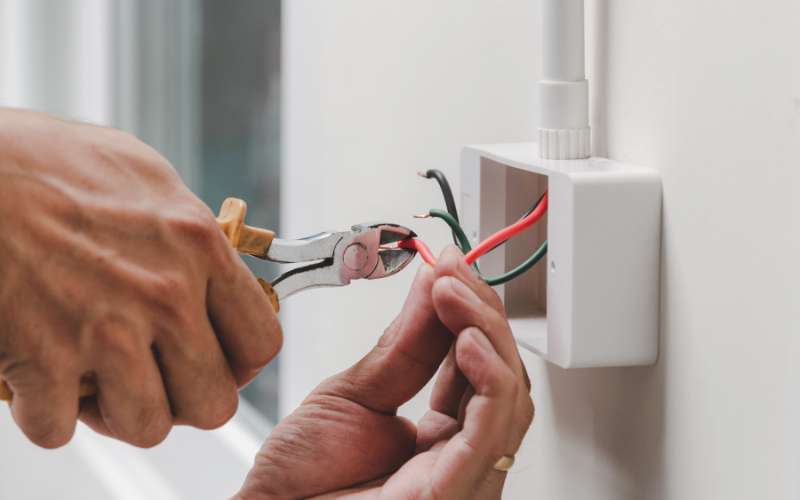Electrical Safety Tips for Home Renovations are essential for homeowners planning upgrades. Whether you’re rewiring a kitchen or adding new light fixtures, safety must come first. A single oversight could lead to severe accidents or expensive repairs. Have you ever started a project, only to realize later that you overlooked electrical safety? This guide will walk you through expert safety tips to prevent hazards. Stay with us to learn the essential precautions and tools to keep your renovation safe and smooth.
Essential Electrical Safety Tips to Follow During Home Renovations
Home renovations can be exciting, but handling electrical work requires special attention. Whether you are a DIY enthusiast or hiring a professional, following safety practices ensures the process is hazard-free. In this section, we explore essential precautions and guidelines.
Inspect Your Home’s Electrical System First
Before diving into renovations, inspect your current electrical system to ensure it meets code standards. Outdated wiring or overloaded circuits can pose risks.
- Check for frayed wires or exposed connections.
- Replace old outlets with GFCI-protected ones near water sources.
- Consult an electrician if your home has aluminum wiring, which requires special care.
- Starting with an inspection helps you avoid electrical issues later.
Turn Off Power Before Working on Circuits
One of the most critical electrical safety tips for home renovations is to always turn off the power. Even experienced professionals follow this rule to prevent shocks.
- Locate your breaker panel and switch off the relevant circuits.
- Use a voltage tester to ensure no current flows through wires.
- Clearly label breakers to avoid confusion during future work.
Never rely on guessing which breaker controls which area—verify it every time.
Use Proper Tools and Wear Safety Gear
Having the right tools not only makes tasks easier but also safer. For electrical work, using insulated tools is non-negotiable.
- Wear rubber-soled shoes and insulated gloves for protection.
- Keep metal tools away from live wires to prevent short circuits.
- Use non-contact voltage detectors to check if power is off.
The right equipment reduces the chance of accidents and ensures smooth progress during renovations.
Hire a Licensed Electrician for Complex Tasks
While minor tasks like changing outlets can be manageable, more complex jobs such as rewiring should be left to licensed professionals.
- Electricians understand the building codes and safety protocols.
- They have the expertise to spot potential hazards you might miss.
- Hiring a professional reduces liability in case of accidents or failures.
Investing in professional help saves you from costly mistakes.
Keep Electrical Components Away from Water
Water and electricity are a dangerous combination. Ensure all electrical work in areas like kitchens and bathrooms follows special safety measures.
- Install GFCI outlets near sinks, bathtubs, or outdoor spaces.
- Use waterproof covers for outdoor switches and outlets.
- Avoid using extension cords in wet areas to reduce the risk of electric shocks.
These precautions keep your household safe from water-related electrical hazards.
Plan for Future Electrical Needs
When renovating, think about your future electrical needs to prevent overloading circuits.
- Add extra outlets to avoid using multiple extension cords.
- Upgrade your panel if you plan to install high-energy appliances.
- Ensure your home is prepared for smart devices or solar installations.
Planning ahead makes your electrical system more efficient and future-proof.
Test and Inspect After Completing Renovations
After finishing your renovation project, it is crucial to inspect and test the electrical work.
- Use a circuit tester to confirm all outlets are functioning correctly.
- Check that all breakers are properly labeled and working.
- Schedule a final inspection with an electrician for added safety.
A thorough inspection ensures your renovation meets safety standards and avoids future surprises.
Stay Safe and Enjoy Your Renovated Space
Ensuring electrical safety is vital during any home renovation project. By following these electrical safety tips for home renovations, you can prevent accidents, save money, and enjoy peace of mind. Whether you are working on simple tasks or tackling major electrical updates, safety should always come first. Don’t hesitate to contact us for professional assistance with your renovation project. Let us help you create a safe and comfortable space—schedule a consultation with our expert electricians today!

